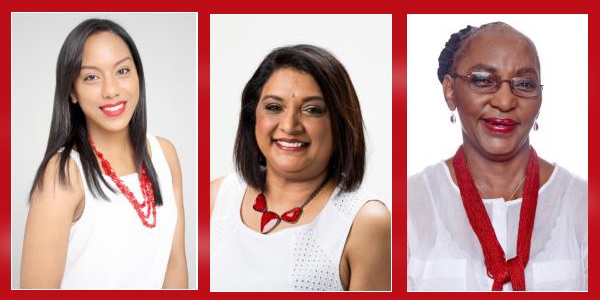Honouring stroke survivors this Stroke Week (28 October - 03 November)
At the tender age of 19 years old, Bianca Damon suffered a stroke. Bianca recalls: “It was like being trapped in my own mind and having a stroke is having a brain attack!”
Stroke affects women - young, old, thin, obese, Indian, African, Afrikaner… it knows no boundaries and stroke has many faces. Every 10 minutes in South Africa, a woman will suffer a stroke.
Read: What is a stroke?
Prof. Alan Bryer from the Division of Neurology at the Groote Schuur Hospital warns: “Stroke is a leading cause of adult disability and one in six people will have a stroke in their lifetime. The risk of stroke increases after 50 years of age but younger people can also have strokes. Slightly more women than men have strokes.
Globally, roughly 1 in 4 people will die when they suffer a stroke, but many will be left with long-term disability. In South Africa 70 people die from a stroke every day and someone suffers a stroke every 6 minutes.
Read: Symptoms of a stroke
1 in 3 women in South Africa have high blood pressure and 1 in 2 is overweight, which partly explains why women suffer more strokes. But women are also more likely to have other risk factors for a stroke including atrial fibrillation, diabetes, migraines with visual aura, and depression. Smoking is more dangerous in women than in men.
To top it off there are several risk factors specific to women only that raise the risk further. These include high blood pressure during pregnancy, contraceptives, hormone replacement therapy and gestational diabetes.
Read: Risk factors for having a stroke
One third of people who suffer a mini-stroke will have a larger stroke in the next year. Seek medical attention when you have a mini-stroke as this can save your life.
Like other forms of cardiovascular disease, a staggering 80% of strokes can be prevented by proper screening, treatment and lifestyle changes. These are the basics:
This means your blood pressure, blood glucose, blood cholesterol, and waist size. High blood pressure is the biggest risk factor for strokes yet most people with this condition are unaware of it. Diabetes in women also places one at higher risk.
Eating healthy, not smoking, keeping active, and managing alcohol use and stress are some of the pillars of healthy living. Evaluate your lifestyle and start making the right choices.
Women who have survived a stroke

From left to right: Bianca Damon, Kay Subramanian and Mpho Makhale have all survived a stroke
BIANCA DAMON:
Bianca Damon suffered a stroke at the tender age of 19 when she had a blood clot on the left side of her brain. She lost movement in her right arm and leg for about a day but is very fortunate to have regained full range of movement. Bianca says: “My biggest challenge was my ability to speak - it was like being trapped in my own mind and having a stroke is having a brain attack!
” Bianca goes on to challenge everyone: “Help save a life! If you have had a stroke or know someone who has suffered a stroke, encourage them to share their stories so we can create awareness.”
KAY SUBRAMANIAN
On 28 September 2014 while celebrating a family birthday, Kay Subramanian felt tired, hot, lame and suddenly slurred her words as her family came to check on her. Once realising the use of her hands were impaired and no feeling in the right side of her face, her family called an ambulance. “My son told me not to be a drama queen because I’m too young to have a stroke.”
Kay recalls, she was 53 years old at the time. On arrival at the hospital she was diagnosed with having had a stroke. She had to work hard in the past year but has finally reached her goal of a full recovery.
MPHO MAKHALE
The 12th of December 2014, will be etched in Mpho Mkhale’s memory as the day that changed her life forever as it started off with a dizzy spell while in the lavatory one day at a work presentation.
Colleagues came to assist her as soon as she managed to get out of the bathroom. The ambulance arrived and the next thing Mpho remembered was waking up in the hospital where she was told she had suffered a stroke.
Mpho suffered immobility on the left side of her body and received a great deal of rehabilitation from speech, occupational and physiotherapists.
By 22 December 2014 Mpho was admitted into a rehabilitation facility and received holistic care until 12 March 2015 where she is proud to now be able to mostly walk without the aid of a stick - some days her left leg feels tight and walking is not easy; she goes to the bathroom unaided; and exercise daily.
Mpho says: “I am seeing a physiotherapist and psychologist, I take medication for my high blood pressure and diabetes, I eat well”. Mpho continues in saying: “It’s a long road ahead, though I now acknowledge how far I have come, and I am eternally grateful to all the medical staff that played a role in saving me."
Read more:
Women often miss signs of stroke
Interesting fact: the warning signs and symptoms of a stroke is different in women




 Publications
Publications
 Partners
Partners














